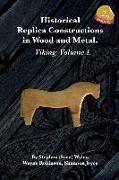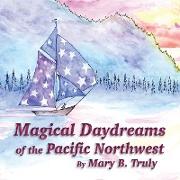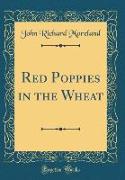Historical Replica Constructions In Wood And Metal: Vikings: Volume 1
BücherAngebote / Angebote:
The Vikings originated in Scandinavia in countries now known as Norway, Denmark and Sweden. The Viking period covered from about the sack of Lindisfarne 793 CE to The Battle of Hastings 1066 CE. Viking were noted for being farmers, raiders, traders, slavers, mercenaries and explorers, using their advanced sailing, navigational skills and longships for exploring river systems and across the seas as part of military, mercantile and territorial expansion and settlement, and even for some serving in the Byzantine Emperor's bodyguard called the Varangian Guard. The geographical extent of the Viking travels included to the East - The Baltic, Kiev, Novgorod, Constantinople, along the river routes, and to the West - England, Ireland, Scotland, and various islands, Iceland, Greenland and Newfoundland (Canada).Our knowledge of the Vikings is hampered because of the lack of recorded history, what we have got are rune stones, the writings of their enemies, the writings of the decedents in the 12th to the 14th century in the Sagas, linguistic and etymological studies, and the study of the artefacts from the Vikings themselves. Archaeological finds are being revisited and there are still more being made and all adding to our knowledge.The Viking artifacts provide an excellent opportunity to learn how their furniture, equipment and accoutrements were made, used, and function, as well as a starting point for learning about other cultures and times in history.This volume contains a collection of knowledge amassed over 30+ years of trial and error in the pursuit of a better historical presentation. It sets out the why's and wherefores, and highlights the traps and pitfalls for the unwary, so that you the reader can start or continue on the journey to a more accurate presentation for the purpose of living history, re-enactment, a display in a museum or just an interest of history.This volume covers some of the basic information (from safety to the form and function of furniture, and chest fittings) and eight basic Viking projects: The Coppergate wooden mallet, The Lund stool, The Oseberg chest (no. 178), The Oseberg bed (no. 2), The Sala Hytta table, The Trondheim toy horse, The Gokstad candle holders, The Birka bag hanger.A definition of "Living History" is the pursuit by the current generation to understand those of the past by attempting to portray and carry out activities of the past without experiencing adverse outcomes. Those activities may involve the wearing of clothing (in some cases wearing armour as well) and the use of tools, equipment and weapons, which helps the participants to understand the past better and will hopefully prevent them from repeating the mistakes of the past. Examples of historical sources range from: Extant remains (e.g. Oseberg and Gokstad ship burials), Stray finds (e.g. Hedeby chest), Illuminated manuscripts (e.g. Cantigas de Santa Mari¿a), Wills, household accounts and other documents of the period, Written eye witness accounts or chronicles of the period, Tapestries (e.g. Bayeux Tapestry).Some of the finds are not complete such as the chests from the Birka cemetery (Grave number 639) [1], where only the metal fittings remain, from them you can work out the size and shape of the chest based on their position in the excavation. Often interpretation of the archaeology reports, drawings and photos is required and this will be covered later.
Folgt in ca. 15 Arbeitstagen




